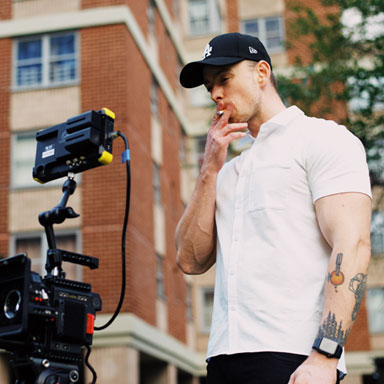The Black Phone
“Brief you’re imperceptible and the following moment the entire state knows your name.” A youthful and ghost voice talks this foreboding reality over a turning telephone recipient into the ear of the town’s most recent child who’s gone for no apparent reason in this independent movie. Segregated in a storm cellar with a solitary window too high to even think about getting to and an out of date telephone, Finney Shaw (Mason Thames) embraces his new situation as he does each day in the rest of the world. He’s accustomed to being the survivor of all that children dread: domineering jerks, the demise of a friend or family member, being disagreeable, crossing a harmful guardian, saying some unacceptable thing to your crush, in any event, hopping a lot while watching a frightening film alone. Notwithstanding, with a little assistance from past the grave, Finney might have barely sufficient battle left in him to confront his definitive dread head-on.
Adjusted from Joe Hill’s brief tale of a similar name, “The Black Phone” is a brutal climate of a blood and gore independent movie that catches the crowd’s feelings as fast as the film’s main enemy abducts youngsters without really trying to hide. Ethan Hawke stars as a covered criminal (nicknamed “The Grabber”) who threatens a rural Colorado town during the 1970s. Taking cover behind the veneer of an awkward performer, he baits kids in with generosity prior to overshadowing their reality with mace and a multitude of mark dark inflatables. This independent movie story is told through Finney’s point of view as crowds get a brief look into his home and individual life before he turns into the criminal’s most recent casualty. In the middle of evading his colleagues sneaking around to thump him, Finney needs to tread lightly at home to stay away from any further maltreatment from his alcoholic dad. The main comfort he can find is close by his sister Gwen (Madeleine McGraw), a sweet yet strict firecracker in braids, who has no doubts about cussing out police or crushing a stone over a harasser’s head.
Be that as it may, support comes in heavenly structure once Finney ends up in a forsaken storm cellar with exposed assets spread about and a dark telephone on the divider. His criminal, wearing a two-piece compatible veil (planned by incredible Tom Savini) insults him with a ceremonial game that needs to happen for any torment and Finney’s ensuing passing to unfurl. Notwithstanding being educated that the telephone doesn’t work, Finney starts to get calls from the criminal’s past casualties as they give him valuable data to his endurance. Meanwhile, Gwen examines her sibling’s vanishing by using her fantasies as an impetus for her visionary capacities.
In this independent movie slope’s brief tale is a frightening stripped down structure, which permits Derrickson and Cargill to profoundly sort through the characters. Finney and Gwen have a commendable relationship where they shield each other from the risks that tail them inside and outside of their home. Thames carries a delicate feeling of weakness to Finney yet his personality curve is by and large what crowds need to see from a dark horse hero. From the beginning, McGraw is an amazing powerhouse and is depicted as “daylight in the end of the world” via Cargill in the film’s Q&A. Her presentation as Gwen is a force to be reckoned with of feeling whether it’s sobbing for benevolence on account of her dad’s belt or gruffly asking Jesus for what good reason he will not do more to help.
While Hawke normally dodges awful jobs, obviously he appreciated playing “The Grabber.” Throughout a large portion of the independent movie, his face is covered up however Hawke utilizes this for his potential benefit by energetically changing his voice and fluctuating from a threatening detainer to a quiet presence that prods Finney at an expected delivery. There are components like John Wayne Gacy present; however the maltreatment doesn’t cross into a sexual area. What’s additionally extraordinary with regards to this specific lowlife is that his personality doesn’t leave any desires for a history. The “why” of his offensive activities is anything but an overall concentration? His conduct is just summarized with a particular sort of unexplainable underhanded that is very normal in the news. The way that Derrickson and Cargill decided to keeps his history missing functions admirably with the tone of this independent and by and large fear the story evokes.
The other worldly part of dead kids conversing with Finney via telephone might sound boring, yet is executed well through enhancements and frightful altering. Their cut off voices are combined with a bloody show of what “The Grabber” did to them in their last hours, an unmistakable picture that delivers a modest bunch of very much planned and viable leap panics. Meanwhile, creation architect Patti Podesta and outfit originator Amy Andrews perfectly submerge crowds into the seventies in a naturalistic way that doesn’t feel constrained or exaggerated for wistfulness purposes. To expand upon this time span, Brett Jutkiewicz adds surface to the independent movie story with grainy cinematography and one of a kind light that catches the polarity of a sluggish town being desolated by a productive executioner.
billy LAx screenplay independent movie
“The Black Phone” is a concise and distressing fear covered with topics of kinship, family, and innovative depictions of versatility. Each part of the independent movie is genuinely capturing and handles ageless feelings of trepidation with dangerously sharp accuracy. Derrickson and Cargill’s cooperative vision explores frightfulness down various roads and goes after customary types of qualities and shortcomings through parts of religion and commonality. For instance, fear can live nearby as a killer while at the same time dwelling in your heart or just strolling down the lobbies at school. The couple who brought crowds “Vile” presently furnishes the independent movie with a hopeless yet engaging update that repulsiveness is inescapable, however at times you can track down a help in the haziest of hours assuming you simply tune in.
The Black Phone is exceptional for a large group of reasons – some of which we will not examine here in light of the fact that they’re best knowledgeable about the film – yet something that stands apart is the amount it seems like Sinister’s kin. There are such countless similitudes between the films, from frightening children, home recordings, and not exactly amazing guardians. In spite of those likenesses, however, this film figures out how to be something totally autonomous. It’s confident in manners that Sinister never was (and shouldn’t have been), but on the other hand there’s apparently no answer for the revulsions that Finney and Gwen face. You’ll see solid equals between the Grabber and the children’s alcoholic dad. One obstacle can be jumped assuming the children make good decisions. The other, however, lays in stand by regardless of whether Finney figures out how to be the principal child to get away from his capturer. The previously mentioned trust is less in Finney and Gwen’s situation and more in their association and power collectively, and it can’t be focused on an adequate number of how well these youngsters play kin. You will think often about a child getting away from the present circumstance regardless in light of the fact that, indeed, you’re a nice individual. However, their relationship and appeal is what the future holds their independent movie story.




